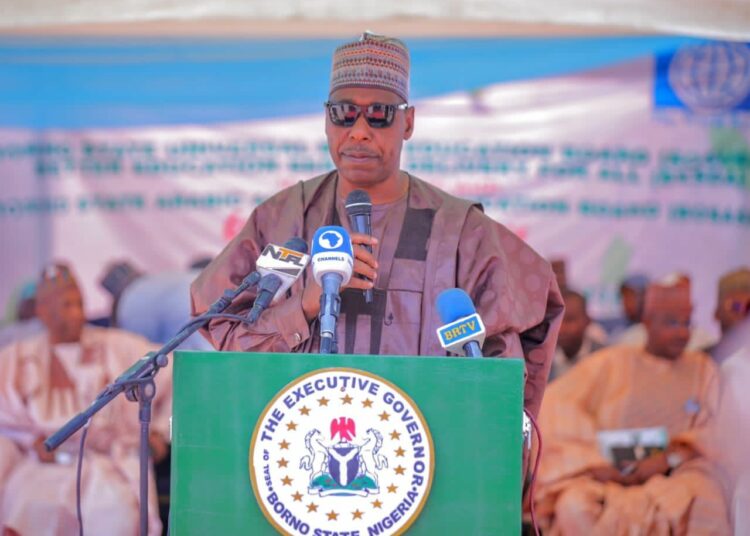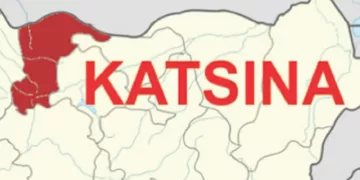Borno State Governor, Professor Babagana Zulum, recently raised the alarm that Nigeria is losing ground to Boko Haram terrorists.
His warning follows a spate of daily attacks by the terrorists on both military and civilian targets, resulting in the deaths of several soldiers and community members in Borno State.
The Nigerian government had previously declared Boko Haram “technically defeated” during the Buhari administration. That administration claimed the group had been so diminished in capacity that it could no longer confront the military directly, resorting instead to targeting soft targets—an indication, it was claimed, of a dying force.
Sadly, this no longer appears to be the case. The recent spike in terrorist attacks in Borno State is not merely a security concern—it is a stark warning that the fragile peace achieved through years of sacrifice and coordinated military efforts may be slipping away. Governor Zulum’s impassioned plea during an emergency security meeting in Maiduguri highlights an unsettling reality: Boko Haram and ISWAP are regrouping, rearming, and reasserting themselves in territories previously reclaimed by Nigerian forces.
This resurgence is particularly troubling for a state government that has invested heavily in resettling hundreds of thousands of citizens displaced by more than a decade and a half of insurgency.
For a region that has borne the brunt of terrorism for over 10 years, the signs are ominous. Attacks on military outposts in Wajirko, Sabon Gari, Wulgo, and Izge underscore the increasing sophistication and confidence of these insurgent groups. Even more troubling is the apparent decline in proactive military engagement in the face of these growing threats. Governor Zulum rightly warns that this resurgence, if left unchecked, could unravel years of hard-won progress.
The Lake Chad Basin—particularly the Tumbus—has emerged as the terrorists’ latest stronghold following their displacement from the once-dreaded Sambisa Forest by Nigerian troops. Zulum’s call for a specialised military operation in these islands is not only strategic but essential. These remote areas serve as breeding grounds where extremists regroup, indoctrinate, and prepare renewed offensives. Nigeria’s military must prioritise these zones if any meaningful security gains are to be maintained.
In line with this, the governor’s appeal for better equipment—Mine-Resistant Ambush-Protected Vehicles (MRAPs), Unmanned Aerial Vehicles (UAVs), and modern surveillance technology—must be urgently heeded. This aligns with the recent strategy outlined by the Chief of Defence Staff, General Christopher Musa, who presented plans to regional governors for leveraging technology in the fight against terrorism. As the Commander of TRADOC noted, future military success will depend heavily on emerging technologies such as artificial intelligence, machine learning, and robotics. These tools are necessities in the asymmetric warfare Nigeria is currently facing.
However, technology and military tactics alone will not solve Nigeria’s insurgency problem. At the heart of terrorism lie deeper issues of governance, poverty, and systemic neglect. Security analysts have identified the main drivers of resurgence: access to money, weapons, and manpower—the oxygen of terrorism. Kidnapping for ransom, illegal mining, and protection rackets continue to finance violent groups, while thousands of idle and disillusioned youths are vulnerable to radicalisation.
The Nigerian state, both at federal and subnational levels, must recognise that this crisis is not merely a security failure but a failure of political will. Illegal mining, for instance, has become a lucrative operation often conducted under the protection of corrupt officials and complicit security personnel. When political and traditional leaders turn a blind eye to these economic crimes, they enable a pipeline that fuels terrorism.
The federal government’s recent response, led by Minister of Defence Mohammed Badaru Abubakar, is commendable in rhetoric. Promises of more troops and equipment, as well as daily situation reports to President Tinubu, indicate an awareness of the urgency. But awareness is not action. The military must be not only reinforced but also re-strategised. A purely defensive posture will not suffice. There must be continuous and coordinated offensives, particularly in hotspots like the Timbuktu Triangle and the Mandara Mountains, where terrorists regroup.
As a newspaper, we believe the surrender of more than 300,000 insurgents and their families in recent years is a testament to the effectiveness of non-kinetic approaches such as deradicalisation and reintegration. These efforts must be scaled up, not only in Borno but across the wider North-East. However, reintegration must go hand in hand with justice and accountability. Communities devastated by terrorism deserve assurance that their suffering will not be reignited by the return of former terrorists to live among them.
Nigeria cannot afford complacency in the battle against Boko Haram and other terrorist groups operating in the North-East and across the country. The cost of inaction is measured not only in lives lost but also in the erosion of state legitimacy and the growing despair of communities. It is a tragic reality that communities across several states are now compelled to pay taxes to terrorists for access to their own farmlands—undermining recent claims by the National Security Adviser, Nuhu Ribadu, that no Nigerian territory remains under terrorist control.
We urge the current administration to gird its loins and take decisive action. This is no longer a time for rhetoric but for resolute, intentional efforts to rid Nigeria of the Boko Haram menace once and for all.











